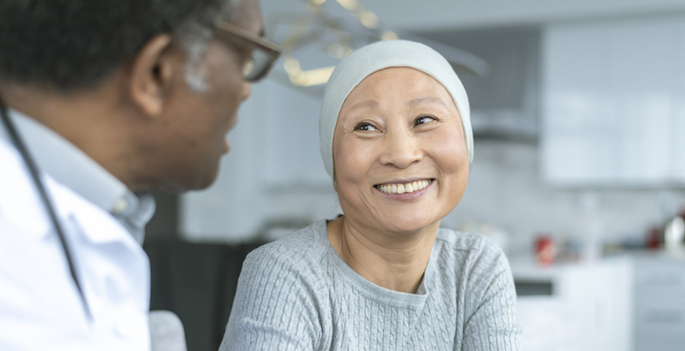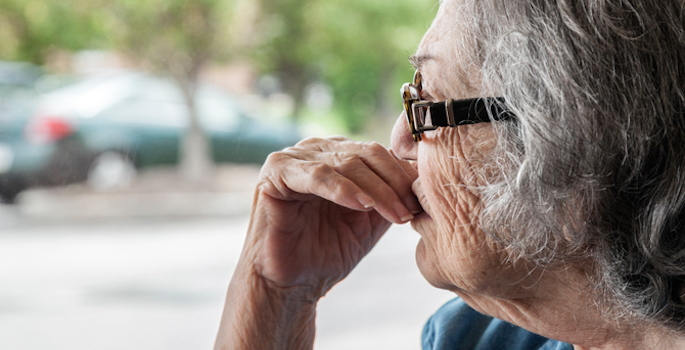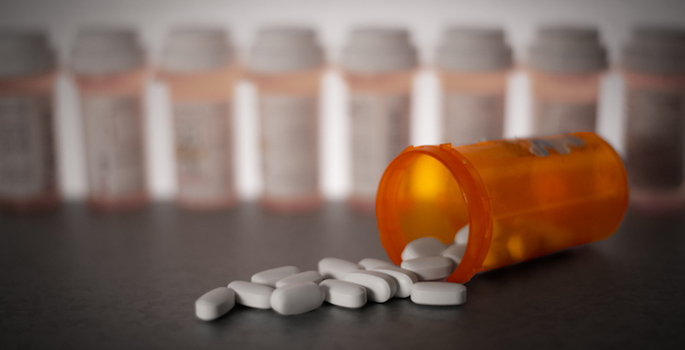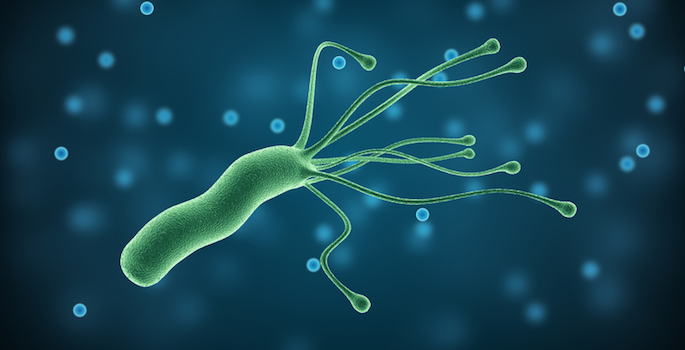Research
-

One-two punch for cancer
A drug combination effectively killed aggressive blood cancers in cell and animal models; now it’s being tested in patients. Read MoreMar 5, 2020
-

Study finds certain genetic test not useful in predicting heart disease risk
A Polygenic Risk Score — a genetic assessment that doctors have hoped could predict coronary heart disease (CHD) in patients — has been found not to be a useful predictive biomarker for disease risk. Read MoreFeb 27, 2020
-

Breast cancer study may help predict treatment response
Researchers at VUMC are reporting another advance in the understanding and treatment of triple-negative breast cancer, which is particularly aggressive and difficult to treat. Read MoreFeb 27, 2020
-

Grant bolsters research on subjective cognitive decline
Katherine Gifford, PsyD, MS, assistant professor of Neurology, has been awarded a five-year, $4.3 million research grant from the National Institute on Aging to study what subjective cognitive decline can reveal about underlying pathology. Read MoreFeb 27, 2020
-

Potential new heartburn drug studied at VUMC
An investigational drug that binds bile acids in the stomach can reduce the severity of heartburn symptoms in patients with treatment-resistant gastroesophageal reflux disease (GERD) when combined with a proton pump inhibitor (PPI), a new study suggests. Read MoreFeb 26, 2020
-

Looking through MudPIT for protein interactions
The identification of novel protein interactions and sites of modification in proteins involved in mRNA translation adds to understanding of a process that is an important therapeutic target. Read MoreFeb 25, 2020
-

Reducing postoperative opioids
An opioid-restrictive prescribing protocol reduced the number of postoperative opioid prescriptions and the oral morphine equivalent per prescription. Read MoreFeb 24, 2020
-

Protein interactions and brain function
Roger Colbran and colleagues have discovered new molecular details about the function of an enzyme with a key role in shaping learning and memory. Read MoreFeb 20, 2020
-

Post-transplant diabetes may be reversible: study
Post-transplantation diabetes mellitus (PTDM), a common complication of immunosuppressive drugs that are given to prevent transplant rejection, may be reversible and at least partially preventable, researchers at VUMC report. Read MoreFeb 20, 2020
-

Transporter mutation alters cell energy
A disease-associated mutation in a transporter protein causes cells to increase energy production, as if they are starving, Vanderbilt researchers have discovered. Read MoreFeb 20, 2020
-

Vanderbilt University Medical Center among top 100 proposals for MacArthur Foundation $100 million grant
The John D. and Catherine T. MacArthur Foundation today unveiled a grant proposal from Vanderbilt University Medical Center (VUMC) as one of the highest-scoring proposals, designated as the “Top 100,” in its 100&Change competition for a single $100 million grant to help solve one of the world’s most critical societal challenges. Read MoreFeb 19, 2020
-

Vanderbilt engineers mine EMRs and clinical journals for novel disease associations and new research paths
A new tool developed by Vanderbilt engineers, in collaboration with clinical and informatic experts, can unearth novel co-morbidities from routinely collected, anonymized electronic medical records. Read MoreFeb 18, 2020
-

Barbershops targeted to improve health of black men
Black men with high blood pressure could benefit from a research study beginning this month to check their vitals while they are getting a haircut at a barbershop. Read MoreFeb 18, 2020
-

Vanderbilt University, L3Harris Technologies collaborate to advance engineers’ space survivability design, analysis, and test skills
A five-year partnership with Vanderbilt University’s Institute for Space and Defense Electronics will leverage the expertise of ISDE engineers and faculty members within the Vanderbilt School of Engineering to create a ready source of technological updates for all L3Harris radiation effects engineers. Read MoreFeb 13, 2020
-

Algorithm helps improve coronary calcium detection
A new algorithm for artificial intelligence-assisted calcium scoring can accurately determine cardiovascular risk across a range of CT scans and in a racially diverse population. Read MoreFeb 13, 2020
-

A key to calcium signaling
Erkan Karakas and colleagues used cryo-electron microscopy to determine structural details of a calcium channel protein that has numerous cell signaling roles. Read MoreFeb 11, 2020
-

Imaging breast cancer cell size
A noninvasive MRI approach assesses breast tumor cell size and could be a useful way to evaluate early response to neoadjuvant therapy. Read MoreFeb 10, 2020
-

Powering H. pylori pathogenesis
Timothy Cover and colleagues report new insights into the sources of energy used by a bacterial “machine” linked to the pathogenesis of stomach cancer. Read MoreFeb 6, 2020
-

Antibody mixture may help block Ebola virus infection
A research team led by scientists at Vanderbilt University Medical Center has developed an antibody mixture that in animals is highly effective in blocking infection by the Ebola virus. Read MoreFeb 6, 2020
-

Conn, Calipari to receive major pharmacology awards
Two Vanderbilt University pharmacologists have won prestigious awards from the American Society for Pharmacology and Experimental Therapeutics (ASPET). Read MoreFeb 6, 2020